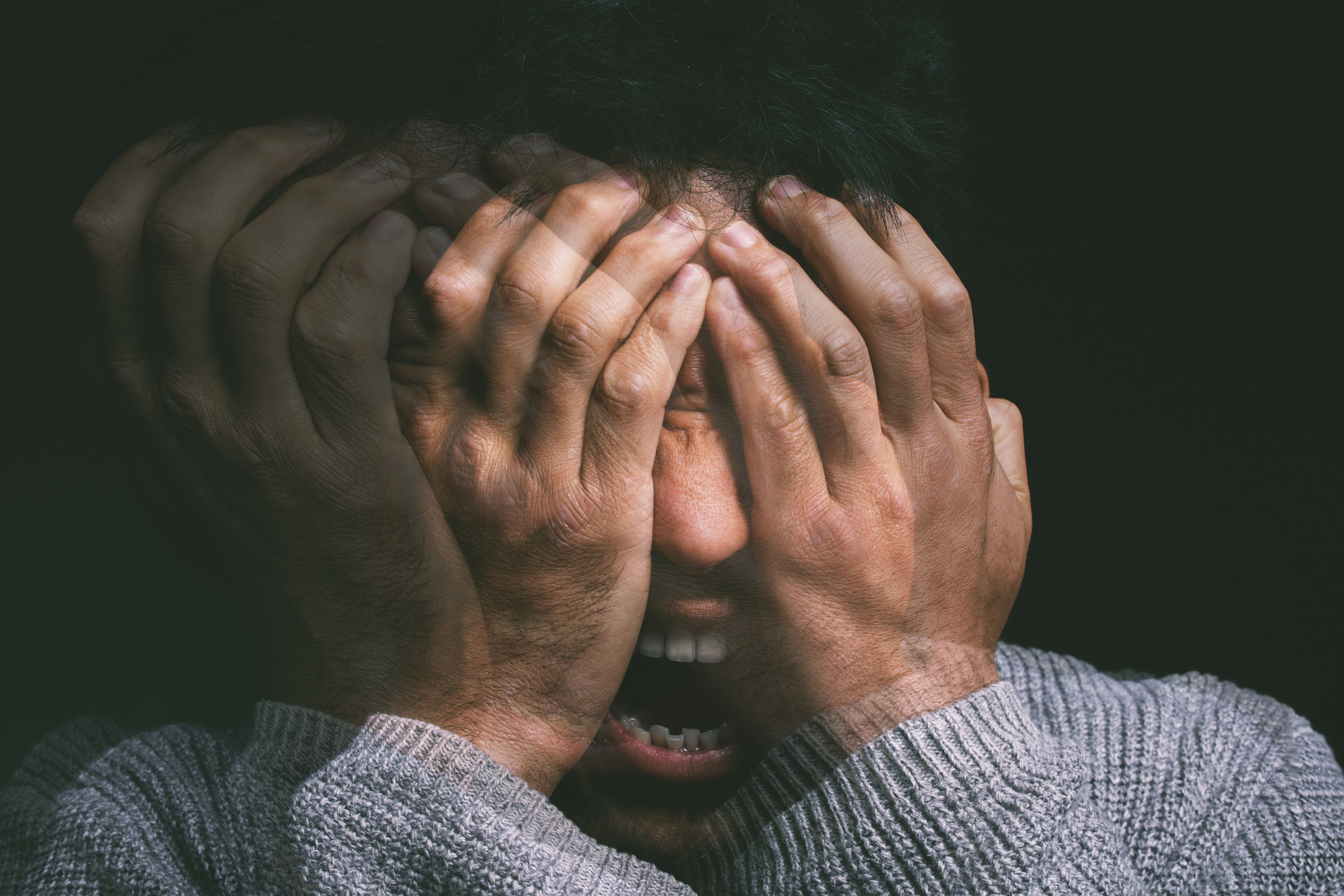
MENTAL ANGUISH: WARNING SIGNS AND LEGAL POTENTIAL
MENTAL ANGUISH EXPLAINED
In a legal context, mental anguish is a component or type of extreme emotional and mental distress, oftentimes experienced during or in the aftermath of an accident or violent incident. Mental anguish includes psychological symptoms and/or emotional pain that arise because of the negligence of another person or party.
For example, if you and a loved one is involved in an auto accident, and you suffer severe injuries, such as paralysis due to spinal damage, you may also experience mental anguish from the loss of ability due to your injury.
In some legal contexts, mental anguish is also described as an extreme feeling of grief, fear, or horror that causes a range of long-lasting, negative side effects. Mental anguish oftentimes accompanies severe psychological conditions such as depression, anxiety, posttraumatic stress disorder (PTSD), and more.
Mental anguish is not just feeling bad or scared. It is the extreme version of those feelings that leads to negative side effects or conditions that impact your daily life well beyond the conclusion of an inciting accident or incident.
Symptoms and Warning Signs of Mental Anguish
Mental anguish is usually accompanied by a variety of warning signs and symptoms. These include but are not limited to:
- Anxiety, which prevents you from engaging in daily activities and may involve ancillary symptoms like panic attacks.
- Depression, which is significant enough that it requires a doctor’s care. Depression can also lead to suicidal ideation and other negative side effects.
- Insomnia, or a lack of ability to sleep regularly.
- Phobias, characterized by extreme fear surrounding certain activities, stimuli, or people. For example, in the aftermath of an auto accident, you may develop a phobia of driving, which prevents you from commuting to work or from participating in daily activities.
- Difficulty concentrating, which may be tied to anxiety or depression.
- Physical symptoms ranging from headaches to tremors to nausea and more.
If you or a loved one has experienced any of these signs or symptoms, it may be due to mental anguish. For many, mental anguish can linger in the background for some time before they realize they are suffering from it.
In the aftermath of an accident, your brain – due in part to adrenaline and in part due to personality – may push mental anguish aside to do what needs to be done, like getting yourself to safety.
Days or weeks later, however, you may develop these symptoms and realize that the accident or incident impacted you more than you initially thought.
To learn more now, call Schwartzapfel Lawyers at 1-516-342-2200 or visit us online!
Mental Anguish vs. Emotional Distress
Although some legal documents or lawyers may speak more about emotional distress, it is very similar to mental anguish in a legal sense.
Therefore, if you claim to have experienced emotional distress due to an accident or incident, you’ve also claimed to have experienced mental anguish and vice versa.
In many personal injury lawsuits, lawyers and other legal professionals will use emotional distress rather than mental anguish. This is due to how emotional distress claims are brought forward in the pursuit of damages or compensation.
HOW DOES MENTAL ANGUISH AFFECT LAWSUITS?
Mental anguish can affect lawsuits and can even act as grounds to sue an at-fault or negligent party by itself. You do not need to have suffered personal injuries to sue another person or party in all cases, even though that is usually the case.
However, for mental anguish to be a factor in or grounds for a lawsuit, you must prove:
- That another person or party had a standard or duty of care to you. For instance, all drivers on New York roadways must drive safely to protect themselves and others.
- That another person or party deliberately or negligently breached that duty of care, such as by driving while under the influence of alcohol or drugs.
- That the breach of duty of care or negligence led to your injuriesor your mental anguish.
Finally, you must prove that you have experienced or are experiencing mental anguish beyond negative feelings.
PROVING MENTAL ANGUISH
Proving mental anguish involves gathering evidence to support your position, similar to proving that you were injured physically. You can do this by gathering much of the same evidence you would gather to support other claims of injuries, such as:
- Medical notes and documentation. For example, if you suffer from depression as a result of an auto accident and losing a loved one, notes from your therapist or doctor diagnosing your depression and recommending treatment can serve as important evidence for your upcoming lawsuit.
- Journal entries and other personal notes. The notes you keep about your day-to-day life can also serve as important evidence for your side of the story.
- Eyewitness accounts or the testimonies of people who live with you or who interact with you regularly. If your superior at work, for example, says that you aren’t able to perform your workplace duties and are clearly suffering from depressive symptoms, that testimony may serve as valuable evidence in proving mental anguish.
Gathering evidence is one thing. Presenting it successfully is another. Personal injury attorneys can help you both gather and present evidence compellingly to the court or to an arbitration or mediation meeting.
Furthermore, you must prove that your mental anguish has an impact on your life. In some cases, this is straightforward. For instance, if you now suffer from anxiety as a result of a medical malpractice incident, you may be unable to interact with certain individuals or unable to leave your home.
In other cases, proving that your mental anguish has an outsized and negative effect on your life can be more difficult. Again, this is why hiring knowledgeable attorneys right from the start of the legal process is wise.
For more on this and related subjects, call Schwartzapfel Lawyers now at 1-516-342-2200 and speak with one of our experienced mental anguish attorneys at no charge. Alternatively, you can schedule your free consultation by visiting us online today.
CAN YOU RECEIVE DAMAGES FOR MENTAL ANGUISH?
If your mental anguish is proven to have an outstanding and/or lasting impact on your livelihood, you may be able to receive damages for mental anguish from the at-fault party or their insurance company.
However, it is oftentimes more difficult to prove that you are entitled to damages for mental anguish compared to physical injuries like broken bones or lacerations. This is due to the nature of mental health conditions and diseases.
That said, knowledgeable attorneys can help you prove that you both have experienced or are experiencing mental anguish and that your emotional distress is severe enough that you require compensation.
INTENTIONAL VS. NEGLIGENT INFLICTION OF EMOTIONAL DISTRESS CLAIMS
When you file a lawsuit for mental anguish, you file an emotional distress claim. According to New York law, there are two (2) types of infliction of emotional distress claims that you can file:
- Intentional infliction of emotional distress (IIED)
- Negligent infliction of emotional distress (NIED). This is the same thing as the unintentional infliction of emotional distress
In both cases, you accuse another person or party of inflicting significant emotional distress and/or mental anguish on you or a loved one.
In the first case, a person who attacks another during a bar fight may be accused of intentional infliction of emotional distress if the bar fight leads to psychological damages or injuries.
In the second case, a drunk driver impacts another car, causing severe psychological harm and depression for the victim. They may be accused of negligent infliction of emotional distress since they did not mean to cause the distress but still did so due to their inattention and irresponsible behavior.
Intentional and negligent infliction of emotional distress claims to be filed by themselves or alongside other claims, like auto accident claims, personal injury claims, medical malpractice claims, and more. In some cases, you may be able to add this claim to another claim you’ve already filed in order to maximize your compensation.
Note: In this regard and others, the right lawyer will be able to give you the proper advice for your case depending on its specifics in relation to the existing law.
BYSTANDER CLAIMS
What if you personally were not injured in an accident yet still suffered psychological harm as a result? For instance, if you and a loved one are involved in an auto accident, but only your loved one suffers a broken bone or concussion, can you still recover damages?
You can still recover damages as a bystander in an accident. New York allows you to make bystander claims according to the “zone of danger” rule. In essence, you may have grounds to file a claim for mental anguish or emotional distress if all of the below factors are met:
- You were in the immediate physical proximity of an accident or incident;
- You were immediately aware of the victim’s injuries;
- The victim was a member of your immediate family, like a sibling, parent, or spouse;
- You were at risk of serious physical harm as well.
With all four (4) factors fulfilled, you may be able to file an emotional distress lawsuit even if you were not physically injured in the incident.
HOW CAN LAWYERS HELP?
The right legal team can provide important assistance when recovering damages for mental anguish or emotional distress.
Collect Evidence
First, your lawyers can collect evidence on your behalf. This can be necessary in cases where it is difficult or impossible for you to leave home or gather evidence, like police reports, medical notes, eyewitness testimonies, and more.
While you recover, your legal team can gather critical evidence that will support your case and maximize your chances of recovering compensation.
Provide Counseling and Support
Throughout the legal process, your lawyers can also provide sound counsel and support, including emotional support.
As experienced New York personal injury attorneys, Schwartzapfel Lawyers know the difficulty of recovering from major accidents or incidents. Not all injuries are visible on the surface, but that doesn’t mean they can’t be debilitating or difficult to overcome.
With our help, you’ll have the legal and personal support you need to get through this trying time. Contact us today by visiting us online or by dialing 1-516-342-2200 now!
Fight for You in Court
Furthermore, qualified personal injury attorneys can fight for you in court, whether that means:
- Filing your lawsuit paperwork for you on time
- Ensuring that you know what to say and how to say it in court
- Fighting for your due compensation at an arbitration or mediation meeting
- Or, diligently handling some other legal matter!
With years of experience helping New Yorkers just like you through hundreds of cases, Schwartzapfel Lawyers knows the importance of having a legal team that won’t rest until you receive what you are owed. We’ll stick by you and stand with you from start to finish. When you hire us, you become our most important client.
If you or a loved one has suffered mental anguish at the hands of another due to negligence or maliciousness, you do have legal options. Schwartzapfel Lawyers can assist with any upcoming legal action you need to take, ranging from personal injury and auto accident lawsuits to medical malpractice lawsuits and beyond!
With our assistance, you’ll be better positioned to maximize your compensation and receive the legal support you need throughout this trying time. But you shouldn’t wait, as your window to file a claim and recover financially may soon close forever.
Instead, act now by contacting Schwartzapfel Lawyers today at 1-516-342-2200 for a free consultation and so much more!
DISCLAIMER: Nothing on this page should be considered legal advice. You should seek the appropriate counsel your situation requires. For more information, call 1-516-342-2200 now!
Sources:
Schwartzapfel Lawyers, P.C. | Fighting For You
Understanding New York’s Zone of Danger Rule | Law.com
Infliction of Emotional Distress Elements | NYC Bar
Mental Anguish | Wex | US Law | LII / Legal Information Institute






























